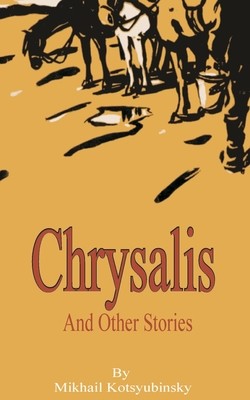
- We will send in 10–14 business days.
- Author: Mikhail Mikhailovich Kotsyubinsky
- Publisher: Fredonia Books (NL)
- ISBN-10: 1589635841
- ISBN-13: 9781589635845
- Format: 12.7 x 20.7 x 1.6 cm, softcover
- Language: English
- SAVE -10% with code: EXTRA
Reviews
Description
Mikhail Mikhallovich Kotsyubinsky (1864-1913), Ukrainian writer and revolutionary democrat, was born in the family of a clerk in the city of Vinnitsa. His childhood and youth were spent in various villages and small towns of the Ukraine. Grief and need overtook him early. "Our family's misfortunes (his mother went flind and his father lost his post) made me even more thoughtful and earnest," writes Kotsyubinsky.
His ties with revolutionary circles subsequently exposed him to cross-examinations, house searches, and secret surveillance by the police.
Mikhail Kotsyubinsky began his literary work in 1884, though his name first appeared in print in 1890. A graduate school-teacher by then, the young writer withdrew to a village. Later, he worked some years with a phylloxera commission, as it was called, combatting grape blights in Bessarabia and the Crimea. From 1898 he lived and worked in Chernigov, making several trips abroad, chiefly for his health. It was in Capri (Italy) that he became friends with Maxim Gorky.
Mikhail Kotsyubinsky's literary legacy is relatively small. His large two-part narrative "Fata Morgana," regarded as his chief work, presents a comprehensive picture of the life and struggle of the Ukrainian peasants just before and during the Russian Revolution of 1905-1907. In addition, he wrote three shorter narratives and some forty stories on various subjects. Adventitiously, he wrote articles, criticism and poems for the newspapers and magazines.
EXTRA 10 % discount with code: EXTRA
The promotion ends in 20d.07:26:21
The discount code is valid when purchasing from 10 €. Discounts do not stack.
- Author: Mikhail Mikhailovich Kotsyubinsky
- Publisher: Fredonia Books (NL)
- ISBN-10: 1589635841
- ISBN-13: 9781589635845
- Format: 12.7 x 20.7 x 1.6 cm, softcover
- Language: English English
Mikhail Mikhallovich Kotsyubinsky (1864-1913), Ukrainian writer and revolutionary democrat, was born in the family of a clerk in the city of Vinnitsa. His childhood and youth were spent in various villages and small towns of the Ukraine. Grief and need overtook him early. "Our family's misfortunes (his mother went flind and his father lost his post) made me even more thoughtful and earnest," writes Kotsyubinsky.
His ties with revolutionary circles subsequently exposed him to cross-examinations, house searches, and secret surveillance by the police.
Mikhail Kotsyubinsky began his literary work in 1884, though his name first appeared in print in 1890. A graduate school-teacher by then, the young writer withdrew to a village. Later, he worked some years with a phylloxera commission, as it was called, combatting grape blights in Bessarabia and the Crimea. From 1898 he lived and worked in Chernigov, making several trips abroad, chiefly for his health. It was in Capri (Italy) that he became friends with Maxim Gorky.
Mikhail Kotsyubinsky's literary legacy is relatively small. His large two-part narrative "Fata Morgana," regarded as his chief work, presents a comprehensive picture of the life and struggle of the Ukrainian peasants just before and during the Russian Revolution of 1905-1907. In addition, he wrote three shorter narratives and some forty stories on various subjects. Adventitiously, he wrote articles, criticism and poems for the newspapers and magazines.


Reviews